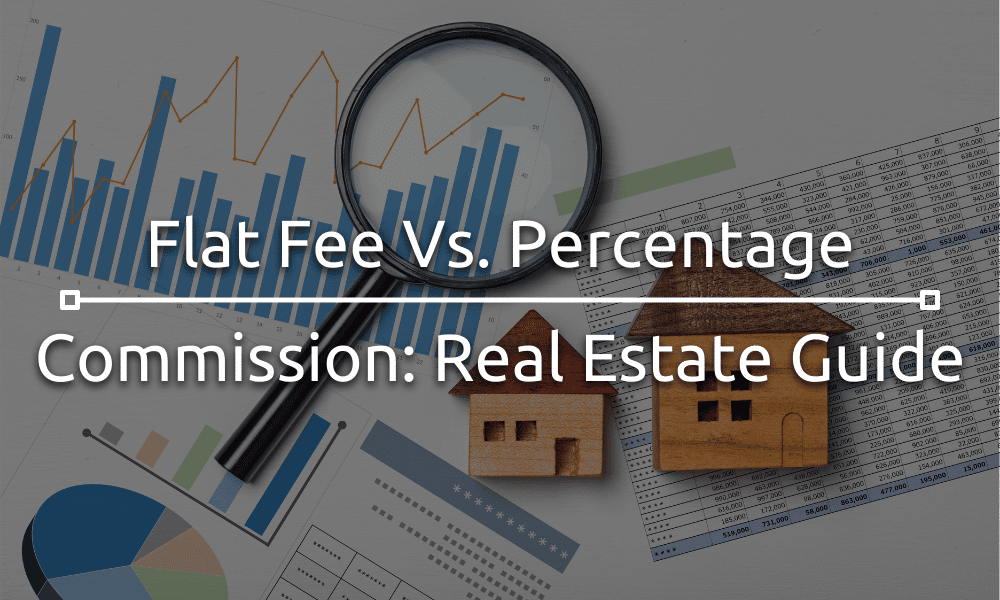Real estate transactions are known to be complex. While buying or selling a house, there are a lot of expenses that can quickly pile up. One of these expenses is real estate commissions.
But, are real estate commissions negotiable? In this article, we will discuss everything you need to know about real estate commissions. We’ll talk about some factors that affect commission rates, and tips for negotiating commissions.
Understanding real estate commissions
Real estate commissions are typically calculated as a percentage of the property selling price. The commission is split between the seller’s agent and the buyer’s agent. Commission rates can vary but are generally between 5% to 6% of the sale price.
For example, if you’re selling your home for $500,000, the commission would be between $25,000 to $30,000. The commission is paid by the seller at closing, and the agent or broker receives a portion of it.
Factors affecting commission rates
The commission rates can vary based on several factors. Let’s discuss some of the more common considerations when it comes to determining commission fees.
Market conditions
The state of the housing market can significantly impact the commission rates. When the market is hot and properties are selling quickly, agents are likely to charge higher commissions. On the other hand, when the market is slow, agents may be more willing to negotiate their commissions.
Property type and location
The type of property and its location can also affect the commission rate. High-end properties, for example, may attract higher commission rates. Marketing luxury properties may be more involved and require a higher-level expertise to sell. Similarly, if the property is located in a remote or challenging location, the commission rate may be higher.
Agent experience and reputation
Experienced and reputable agents may charge a higher commission rate. This is because they have a proven track record of success. However, less experienced agents may be willing to negotiate their commissions to secure the listing.
Services provided by the agent
The services provided by the agent can also impact the commission rate. If the agent is providing additional services like staging, professional photography, or virtual tours, they may charge a higher commission rate.

Negotiating real estate commissions
Negotiating real estate commissions is possible, but it can be tricky. It’s essential to understand that agents work on commission, and their income is based on the commission they earn.
Therefore, they may not be willing to negotiate their commissions. Especially if the market is hot, and they have a lot of clients.
However, it’s not impossible to negotiate a lower commission rate. Here are some steps to help you negotiate real estate commissions.
- Research: Do your research on average commission rates in your area. This will give you an idea of what to expect and what is reasonable to negotiate.
- Be Clear About Your Expectations: Be clear about what you expect from the agent and what you are willing to pay. It’s essential to communicate effectively and be upfront about your needs.
- Be Willing to Compromise: Negotiations are all about compromise. Be open to compromise and be willing to find common ground.
- Get Everything in Writing: Once you have agreed on a commission rate, make sure you get everything in writing. This will protect you and ensure that everyone is on the same page.
Benefits of negotiating real estate commissions
Negotiating real estate commissions can have several benefits.
First, it can save you a lot of money. A lower commission rate means more money in your pocket.
Second, negotiating commissions can also help you build a better relationship with your agent. You can work together to find a commission rate that works for both parties. This can establish trust and a sense of collaboration between you and the agent.
Finally, negotiating commissions can also give you more control over the transaction. You can ensure that you are getting the services you need at a price that you are comfortable with.
Risks of negotiating real estate commissions
While there are benefits to negotiating real estate commissions, there are also risks.
If you push too hard for a lower commission rate, you may risk losing the agent altogether.
Additionally, if you negotiate a lower commission rate, the agent may not be as motivated to work as hard for you. This could lead to a slower sale or a lower sale price.
Negotiating commissions can also lead to tension and a breakdown in the relationship between you and the agent. It’s important to approach negotiations with a sense of collaboration and respect for the agent’s work and expertise.
Tips for negotiating real estate commissions
Here are some tips to help you negotiate real estate commissions effectively:
- Research Commission Rates: Do your research on average commission rates in your area. This will give you an idea of what to expect and what is reasonable to negotiate.
- Understand the Agent’s Perspective: Realize that agents work on commission, and their income is based on the commission they earn. Be respectful of their work and expertise.
- Communicate Effectively: Be clear about your needs and expectations, and be open to compromise.
- Offer Something in Return: If the agent isn’t willing to lower commissions, see what you can offer in return. For example, you could offer to cover the cost of advertising or other expenses.
- Get Everything in Writing: Once you have agreed on a commission rate, make sure you get everything in writing. This will protect you and ensure that everyone is on the same page.

Alternative options
In recent years, there has been a rise in real estate agents that offer an alternative to the traditional commission model. These are agents who offer lower commission rates than traditional agents, or charge a flat fee for their services.
Either of these options have the potential to save you money, and negate the need to negotiate commissions at all. However, there are some things to keep in mind when choosing what will work best for you.
Flat fee real estate agents
It’s all in the name. Flat fee agents charge a set, flat fee to list a home. This fee can range from broker to broker, but it is usually somewhere between $3,000 and $5,000. While this amount can be considerably less than a traditional commission rate, there are drawbacks.
Typically, a flat fee agent will simply list your home on the multiple listing service (MLS). In many cases, that will be the extent of their involvement. Services like any additional advertising and marketing, showings, and even negotiations are not included in their fee.
While it’s not completely unheard of for a flat fee agent to offer these services, it is rare. Or, in some cases, to charge additional money for them.
Discount real estate agents
Discount real estate agents can be a great option for those who want to avoid negotiating commissions. These agents and brokerages, such as 1 Percent Lists, offer a lower commission rate than traditional agents. This can save sellers thousands of dollars in commission fees.
With a discount real estate agent, you can avoid the back-and-forth negotiations with agents over commission rates. This is because with a rate set at a third of the traditional commission model, there’s no need for negotiations.
Additionally, discount real estate agents often offer the same level of service as traditional agents. They can provide marketing materials, host open houses, and assist with the negotiation process.
Conclusion
Choosing to work with a discount real estate agent can be an excellent way to save money on commission fees. And you won’t have to sacrifice top-notch service. With a lower commission rate, sellers can avoid the stress of negotiating with agents over fees. Considering a discount agent may be a smart choice for your budget and peace of mind.
And if you’re a real estate professional looking to take the next step in your career, a 1 Percent Lists franchise might be right for you! Contact us about amazing franchise opportunities in your area.





